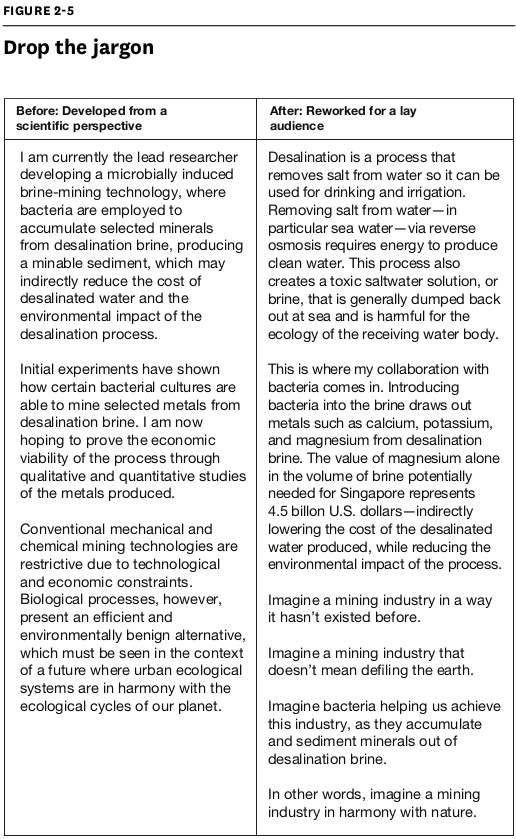Lose the Jargon
Have you ever listened to a presenter who sounded supersmart—without having any idea what she really said?
Each field has its own lexicon, filled with words that are familiar to experts but foreign to everyone else. Even different departments within the same organization use niche language and acronyms that mean nothing to other groups. And the more companies and individuals innovate within their areas of expertise, the bigger and gnarlier their vocabularies get.
Unless you’re presenting to a roomful of specialists cut from the same cloth, don’t assume that everyone will understand your jargon. Modify your language so it resonates with the people whose support and influence you need. If they can’t follow your ideas, they won’t adopt them.
What’s more, delivering abstruse presentations can hurt your career. As communications coach Carmine Gallo puts it, “Speaking over people’s heads may cost you a job or prevent you from advancing as far as your capabilities might take you otherwise.”
So lose the jargon. If a specialized term is central to your message, translate it. Would your grandmother understand what you’re talking about? Rework your message until it’s that clear.
The presenter in the following example (figure 2-5) spoke to an audience of 800 people who could fund his idea but didn’t have deep knowledge of the science behind it. The first column shows what he said during rehearsal; the second shows what he said at the presentation, after he got feedback and reworked his talk for an intelligent lay audience.

